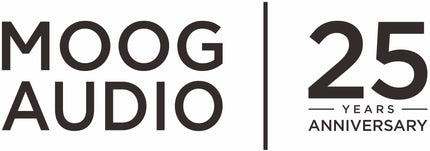Analog and Trigger Sequencer, 2 rows of 8 steps with knobs and 2 rows of 8 steps switches
Features of the analog rows (knobs):
8 potentiometers (knobs)
lower row: Scale (knob), voltage output range 0 ... ~ +6,5V
upper row: 1V/2V/4V (octave range switch for exact VCO control), voltage output ranges 0 ...1.0V / 0 ...2.0V / 0 ...4.0V
Glide time (knob), same as portamento or slew limiter
Glide Control (control input for switching glide on/off)
S&H Control (control input for internal S&H, works like A-148)
Pre Glide/S&H-Out (analog output before S&H and glide unit, especially required when external audio signals are used as inputs of the lower row)
Post Glide/S&H-Out (analog output after S&H and glide unit)
lower row: external inputs for the 8 steps (switched jack sockets), control signals or audio signals may be used as inputs (allowed voltage range -5V...+12V), the knobs of the lower row are working in this case as attenuators
Features of the trigger rows (switches):
4 Trigger/Gate tracks with 2 rows of switches
toggle switches of 1-0-1 type (with middle position), which can be used to send a trigger/gate to the track above or below or to send no trigger/gate (middle position)
3 trigger rows (i.e. short pulse for each step set, pulse width corresponds to the pulse width of the clock/step input signal)
1 gate row (i.e. a high signal is applied during the length of the step set)
Control inputs and buttons:
Step (defines the tempo of the sequence, same as clock or trigger input)
Reset (resets all rows to step 1)
Start (starts the sequence at the momentary position)
Stop (stops the sequence at the momentary position)
Step and Reset are compatible to the MIDI interface A-190, i.e. in combination with the A-190 the A-155 may be synchronized via MIDI. The quantizing module A-156 can be used to quantize the infinite analog voltages coming from A-155 into discrete semitone steps (multiples of 1/12V). Without MIDI interface e.g. a LFO rectangle output can be used to define the tempo of the sequence.
The sequencer controller A-154 adds a lot of new functions to the A-155 (e.g. voltage controlled addressing, forward/backward/pendulum/random mode, voltage control of first and last step, voltage controlled clock and gate length, step skipping, combination of several A-155 in parallel/serial mode and many more).




